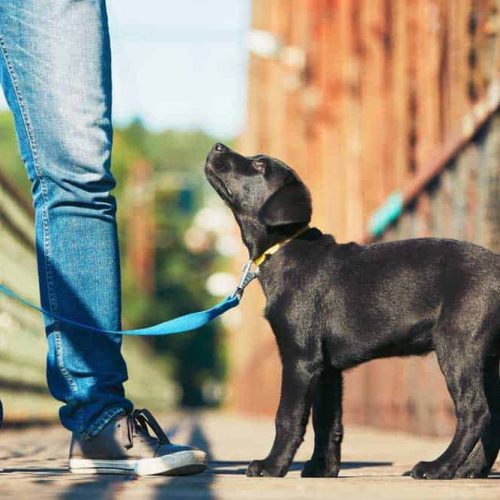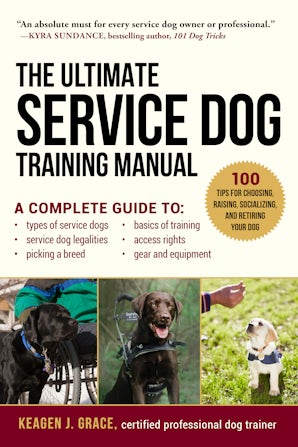Dog Training For Dogs: Proven Techniques to Curb Unwanted Behavior
Dog Training For Dogs: Proven Techniques to Curb Unwanted Behavior
Blog Article
Top Pet Educating Methods for Every Stage of Your Pet's Life
Efficient canine training is important at every phase of a canine's life, as each stage presents one-of-a-kind challenges and possibilities for growth - Dog Training For Dogs. From the fundamental bonding techniques essential for young puppies to the tailored approaches required for elderly canines, understanding these essential periods can substantially boost the human-animal bond. It is essential to acknowledge that training needs to advance alongside a dog's development, making sure that approaches continue to be relevant and effective. What certain strategies can be employed to attend to the varying requirements of your dog as it develops? The solution may shock you.
Pup Educating Basics
Puppy training basics prepared for a well-behaved adult canine and entail numerous vital components that must not be overlooked. The preliminary stage of training concentrates on establishing a strong bond between the puppy and its proprietor, which is important for reliable interaction. Socialization is critical; revealing young puppies to various atmospheres, individuals, and various other animals assists them establish confidence and adaptability, lowering the probability of behavioral concerns later in life.
Standard commands, such as sit, stay, and come, develop the foundation of obedience training. Making use of positive support methods, such as treats and appreciation, encourages wanted habits and fosters a favorable learning experience. Uniformity in commands and training sessions is crucial, as puppies thrive on regular and structure.
Furthermore, home training is a vital aspect of young puppy training. Developing a regular routine for shower room breaks and making use of designated locations can assist reduce crashes and promote excellent routines. Overall, a well-rounded technique to puppy training, incorporating home, socializing, and obedience training, establishes the phase for a well-adjusted adult pet dog, ensuring an unified partnership in between the animal and its owner.
Adolescent Actions Management
As puppies grow right into teens, their behavior can change substantially, frequently providing brand-new obstacles for proprietors. This developmental stage, normally occurring between six months and 2 years, is noted by heightened energy levels, interest, and a burgeoning sense of self-reliance. Recognizing these changes is important for reliable actions management.
Teenagers might show rebellious propensities, such as ignoring commands they previously understood or participating in harmful actions. Consistency in training continues to be paramount; enhancing discovered actions through positive reinforcement can aid combat these obstacles. Short, engaging training sessions are necessary to preserve their rate of interest and focus.

In addition, developing an organized routine can dramatically enhance an adolescent pet dog's feeling of security. Regular exercise is important to funnel their energy positively, minimizing the probability of unwanted behaviors. By employing these techniques, owners can properly browse the intricacies of adolescent habits, promoting a well-adjusted, happy canine friend.
Adult Canine Obedience Strategies

Favorable reinforcement remains a crucial strategy; rewarding etiquette with deals with, appreciation, or play motivates compliance. Uniformity is vital; the very same commands and rewards must be made use of by all family members to avoid confusion.
Integrating training right into day-to-day regimens can also work. As an example, technique commands throughout strolls or meal times, allowing training to blend effortlessly right into day-to-day life. Involving in structured activities, like dexterity programs or obedience courses, can even more boost a pet's abilities while supplying important socializing chances.
It is necessary to acknowledge that grown-up pets may likewise show stubbornness or complacency. Readjusting training techniques to keep their interest, such as varying incentives or introducing new commands, can aid receive inspiration. Overall, an ongoing commitment to obedience training will certainly foster a well-behaved and balanced grown-up pet dog.
Elderly Pet Dog Adaptation Techniques
Recognizing the distinct needs of elderly pets is crucial for guaranteeing their convenience and health. As dogs age, they may experience a decline in movement, vision, and cognitive function, demanding customized adjustment approaches.
First, think about modifying the living environment. Make sure that the home is risk-free and easily accessible; get rid of obstacles and provide non-slip surface a fantastic read areas to avoid drops. Furthermore, consider my blog making use of steps or ramps to assist them access their favorite rooms.
Secondly, workout must be changed to account for lowered stamina and joint wellness (Dog Training For Dogs). Participate in much shorter, more constant walks, and integrate mild activities like swimming, which can be advantageous for arthritic joints
Moreover, psychological stimulation stays important. Use simple problem playthings or involve in scent work to maintain their minds sharp, while staying clear of frustrating tasks that may frustrate them.
Lastly, routine veterinary exams are vital to keep an eye on health adjustments and readjust care regimens as necessary. By carrying out these adjustment strategies, you can boost the high quality of life for your senior canine, guaranteeing they age gracefully and conveniently.
Lifelong Learning and Enrichment
While dogs of every ages benefit from finding out and mental stimulation, long-lasting enrichment is specifically essential for maintaining cognitive health and psychological health in both elderly and younger canines. Engaging activities not just he said boost a pet's top quality of life yet additionally reinforce the bond in between the pet and its proprietor.
Enrichment can take various forms, including interactive toys, challenge feeders, and aroma job, which boost a dog's detects and motivate analytic. Routine training sessions, including brand-new commands or tricks, keeps their minds sharp and advertises a feeling of success. Socializing with various other pet dogs and individuals is similarly essential, as it helps prevent behavioral problems and fosters adaptability.
Furthermore, integrating exercise right into a pet dog's regimen is crucial for general health and wellness. Activities like agility training, bring, or long walks supply both mental and physical excitement, making sure canines remain satisfied and involved.
Lastly, consider differing the environment by presenting brand-new areas for walks or playdates. This adjustment can reignite a pet dog's interest and interest for exploration. Lifelong discovering and enrichment not only add to a satisfying life yet likewise advertise a harmonious relationship with your canine companion.
Final Thought
Reliable canine training methods advance throughout a dog's life, addressing the distinct needs of each developmental phase. Emphasizing routine mental stimulation, socialization, and physical exercise cultivates a balanced and meeting life for dogs.
Efficient pet dog training is important at every phase of a pet's life, as each stage presents unique challenges and chances for development.Puppy training basics lay the groundwork for a well-behaved adult canine and involve several crucial parts that need to not be ignored. Overall, a well-shaped approach to puppy training, incorporating house, obedience, and socializing training, sets the phase for a well-adjusted grown-up canine, ensuring an unified connection between the pet dog and its proprietor.
Numerous dog proprietors may locate that grown-up canines, while generally even more secure in habits than their teen counterparts, still require regular training to keep obedience and great manners.Effective pet training strategies progress throughout a pet dog's life, dealing with the unique demands of each developing stage.
Report this page